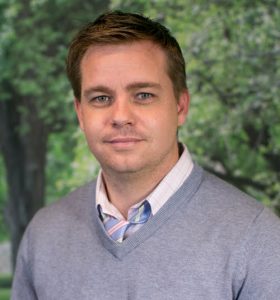The Unfinished Business of Childhood: Healing the Social Worker's Childhood Trauma Wounds
This workshop explores how unresolved childhood trauma and adaptations impact the professional lives of social workers, shaping their relationships, decision-making, and emotional well-being.
Description
Participants will examine the adaptive behaviors developed in childhood, such as people-pleasing, over-functioning, or hypervigilance, and their connection to professional challenges like burnout, secondary trauma, and boundary difficulties. The session incorporates interactive activities and self-reflective exercises to uncover how personal histories influence professional roles and caregiving dynamics. Special attention will be given to the tension between attachment and authenticity, helping participants identify patterns that may hinder their ability to practice with alignment and integrity.
Through a strengths-based lens, attendees will explore the role of identity—such as race, gender, and sexual orientation—in shaping trauma adaptations and professional experiences. The workshop also highlights the impact of emotional contagion in client interactions and offers strategies for maintaining emotional boundaries while fostering therapeutic connections. Participants will leave equipped with practical, neuroscience-informed strategies for sustainable self-care and emotional regulation. Designed for social workers at all levels, this workshop provides a safe and inclusive space to foster self-awareness, resilience, and a renewed commitment to trauma-informed practice.
Learning Objectives
At the conclusion of this workshop, participants will be able to:
- Participants will identify how unresolved childhood trauma and adaptive behaviors manifest in their professional roles, decision-making, and emotional responses, using reflective exercises and case examples to deepen understanding.
- Participants will analyze and practice evidence-based strategies for maintaining emotional boundaries and managing the impact of emotional contagion in client interactions, fostering therapeutic effectiveness and professional sustainability.
- Participants will develop a personalized self-care plan incorporating neuroscience-informed strategies to support long-term resilience and align their professional practice with their authentic selves.
Workshop Information
Date
On-demand
Time
2.5 hours
CEs
2.5
***You will receive the link to the workshop within 24 business hours of registering. If it is your first time registering for an on-demand workshop with us you will be required to create a login through SlideLive: instructions will be forthcoming after you register***
Tuition
- $45 – Registration Fee
- $36 – Alumni, Adjuncts, Field Instructors Rate
- FREE – Student Rate
Faculty Bio
 Adam McCormick, MSW, PhD
Adam McCormick, MSW, PhD
Adam McCormick, MSW, PhD is Professor of Social Work at St. Edward’s University in Austin. He has a number of research interests and speaks frequently on a number of topics including LGBTQI+ youth in the child welfare system, the trauma of family separation in child welfare, the weaponization of poverty in child welfare, the relationship rights of siblings in foster care, the intersections of child welfare and immigration, social work and moral injury, and masculinity and mental health. He is the author of the forthcoming book, The unfinished business of our childhood: Healing the child trauma wounds of helping professionals. Dr. McCormick is also the author of the book LGBTQ youth in the foster care system: Empowering approaches to an inclusive system of care.
Credentialing Information
Important: To receive approved continuing education credits, participants must attend the entire training or workshop and submit a completed evaluation form.
See full credentialing information and CEUs
New York State Office of the Professions (NYSED) regulations require that participants must be present for the entire approved educational activity in order to receive a certificate for continuing education hours. There is no accommodation in the State regulations for late arrival, late return from lunch or breaks, or early departure. According to NYSED, in order to award social work CEs; “When you offer a multi-day or multi-part course/educational activity, the learner must complete all parts in order to earn the certificate for contact hours, in the same way that a student must complete a semester-long course to receive college credit. You may not award partial credit for a program, even a one-day program, if the learner does not complete all requirements at that time.
Cancellation Policy
Please note that we are unable to offer refunds for cancellations made within seven business days of the event or for no-shows. However, if you notify us at least 24 hours in advance, we can issue a credit toward a future workshop. No credit will be provided for cancellations made less than 24 hours before the event.